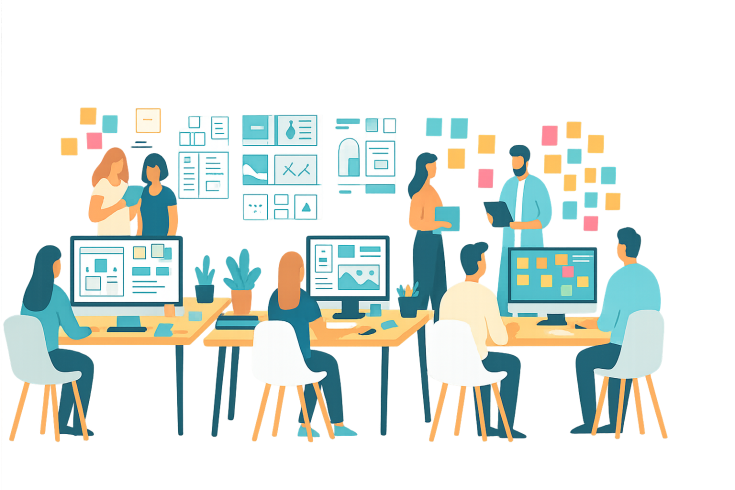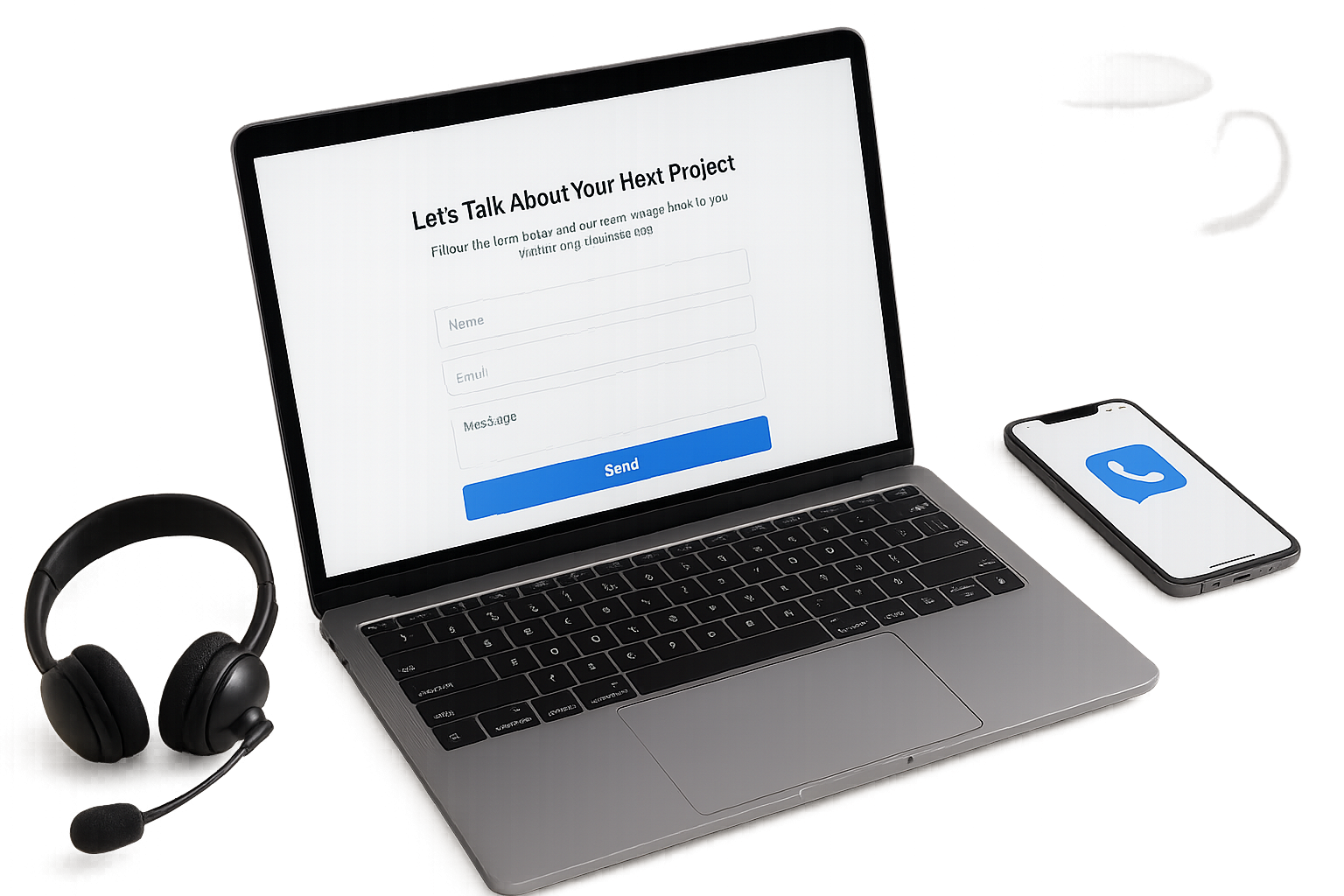Custom Website Engines and CMS Website Creation Solutions

How to Choose the Best Website Engines for Effective Website Creation on CMS
 When it comes to building your online presence, selecting the right website engines is critical for effective website creation on CMS. With so many options available, it can be overwhelming. However, understanding the key aspects that make a CMS website creation project successful will help guide your decision.
When it comes to building your online presence, selecting the right website engines is critical for effective website creation on CMS. With so many options available, it can be overwhelming. However, understanding the key aspects that make a CMS website creation project successful will help guide your decision. 1. Understand Your Needs ⭐ First, evaluate your specific requirements. Ask yourself: 1. What do I want to achieve with my website? 2. How complex do I anticipate the site will be? 3. What features are essential for my business? For example, if you run a small café, you may need an attractive site that lists your menu and location. In contrast, a tech startup might require complex functionalities like user registration and real-time chat. Knowing what you need allows you to choose a CMS that fits.
2. Explore Popular Website Engines ⭐ Here are some popular choices for website engines that cater to different needs.
| Engine | Best For | Ease of Use | Cost (€) |
| WordPress | Bloggers & Small Businesses | High | Free, Premium themes available |
| Joomla | More Complex Sites | Medium | Free, Premium Add-ons |
| Drupal | Advanced Users | Low | Free, Premium features |
| Shopify | eCommerce | High | Starting from €29/month |
| Magento | Large eCommerce | Medium | Free Open Source, Premium Paid |
| Wix | Beginner Users | Very High | Starting from €4.50/month |
| Squarespace | Portfolio & Visual Sites | High | Starting from €12/month |
3. Consider Scalability ⭐ When choosing an engine, consider your future growth. You want a platform that can scale alongside your business. For example, while a simple blog may start on WordPress, an expanding brand might evolve into a comprehensive eCommerce site. Choose a platform like Shopify that can handle increased traffic and sales without crashing.
4. Security Features ⭐ Security must be a top priority, especially if you are handling sensitive information. Look for engines that offer regular updates and robust security features. For example, Joomla provides built-in security and is frequently updated, which is a bonus for business owners concerned about data protection.
5. The Importance of SEO ⭐️ Search Engine Optimization (SEO) is crucial for online visibility. Ensure that the chosen website engine is SEO-friendly. WordPress, for instance, integrates well with numerous SEO plugins, giving you greater control over how your site is indexed by search engines.
Real-World Success Stories ⭐ Take the story of Alex, who runs an artisanal bakery. Initially, he launched a simple Wordpress site to showcase his delicacies. As demand grew, he worked with us at Nexrilo and transitioned to a full eCommerce platform using Shopify. With our help, he saw a 200% increase in online orders within three months!
Expert Advice on Managing Your IT Infrastructure ⭐ Maintaining the right IT infrastructure is equally important for ensuring smooth operations. Consider these tips: - Regularly update your CMS to protect against vulnerabilities. - Back up your site frequently to prevent data loss. - Use strong passwords and two-factor authentication where possible. At Nexrilo, our professionals recommend performing at least quarterly reviews of your infrastructure to keep things running efficiently. Are you ready to turn your ideas into reality? Whether you’re looking to start simple or go big immediately, our team at Nexrilo is here to help! Call us at [email protected], or visit us on our website nexrilo.com. We offer a guarantee on our services and a full spectrum of assistance—from development to technical support—all in one place.
Frequently Asked Questions (FAQs) 1. What is a CMS? - A CMS (Content Management System) is a platform that allows you to build and manage your website without needing extensive coding skills. 2. What are the benefits of using WordPress? - WordPress is highly flexible, has a large community support, and offers an abundance of plugins and themes. 3. How often should I update my CMS? - Regular updates are crucial. Aim to check for updates at least once a month to maintain security and performance. 4. Can I change my website engine later on? - Yes, but it often requires significant effort. Choose an engine that aligns well with your long-term goals from the start. 5. What if I need a specific feature that my chosen CMS doesn’t support? - Many CMS platforms offer plugins or third-party solutions. Always research extensions carefully before purchasing. 6. How can I improve my websites SEO? - Use SEO plugins, optimize your content with relevant keywords, and ensure fast load times. 7. Is website maintenance important? - Absolutely! Regular maintenance prevents security breaches and keeps your site functioning optimally. 8. What should I do if my website goes down? - Contact your IT support immediately and ensure you have a backup in place for recovery. 9. How long does it take to build a website? - This can vary widely. A simple website can take a few weeks, while complex projects may take several months. 10. What costs should I expect in CMS website creation? - It varies by platform, but initial costs can range from free to several thousand euros depending on your requirements. Get in touch with us at [email protected] or visit nexrilo.com to learn more about how we can support your businesss journey to success!
What Are the Myths and Realities of CMS Website Creation in Todays Digital Landscape?
 In todays digital age, misconceptions about CMS website creation can cloud your judgment and decision-making. Let’s unravel some common myths and the stark realities behind them, so you can confidently navigate your path to effective website development. ⭐
In todays digital age, misconceptions about CMS website creation can cloud your judgment and decision-making. Let’s unravel some common myths and the stark realities behind them, so you can confidently navigate your path to effective website development. ⭐
Myth 1: CMS Website Creation is Only for Tech Experts
Many people believe that only tech wizards can create a website through a CMS. This couldnt be further from the truth! While some technical skills can be helpful, most modern CMS platforms like WordPress or Joomla are designed for users of all skill levels. You don’t have to be a coding guru! Reality: With user-friendly interfaces and extensive documentation, anyone can build and manage a website, regardless of their technical background. Just like Lisa, who runs a local yoga studio. With no prior coding experience, she successfully launched her website using WordPress, helping her attract new clients quickly. ⭐Myth 2: All CMS Platforms Are the Same
Its easy to assume that all CMS platforms are interchangeable. However, thats a myth that can lead businesses down the wrong path. Reality: Each platform has unique features, capabilities, and user experiences. For instance, Shopify specializes in eCommerce, while WordPress excels at blogging and content-heavy sites. Understanding which platform suits your business goals is critical. For instance, if you’re an artist looking to showcase your portfolio, you might find Squarespaces visual tools particularly useful compared to a more technical platform like Drupal.Myth 3: CMS Website Creation Is Always Costly
Many believe that building a website on a CMS requires a hefty budget. While costs can accumulate, budget-friendly options exist. Reality: Starting with a basic CMS can be inexpensive. For instance, WordPress offers many free themes and plugins that can help you get started without breaking the bank. In fact, Alex saved over €1,000 by using free tools for his coffee shop’s website. With intelligent investing in SEO and a good hosting plan, you can scale your website economically. ⭐Myth 4: Websites Built on a CMS Are Less Secure
Some fear that a website created on a CMS is more vulnerable to attacks. This myth often stems from the notion that open-source platforms are inherently risky. Reality: While no platform is completely immune to security threats, CMS tools like WordPress and Joomla frequently release updates to address vulnerabilities. Implementing strong security measures like SSL certificates, regular updates, and security plugins can greatly enhance your sites protection. For example, a small business that implemented routine updates and security checks alongside our support experienced no major hacks in over two years. ⭐Myth 5: You Cant Scale a CMS Website
Many think that once you’ve built a website on a specific CMS, that’s it—you’ve reached your limits. Reality: CMS platforms are incredibly scalable. For example, Shopify can handle thousands of products and high traffic volumes, making it suitable for businesses of any size. After upgrading to a more comprehensive eCommerce solution, Alex managed to quadruple his product offerings and serve more customers without a hitch!Real Stories—Confronting Myths with Facts
Consider Maria, who was hesitant to create her real estate website. She believed she needed advanced technical skills. Upon contacting Nexrilo, she discovered that website engines such as WordPress made her development process a breeze. With our guidance, she was able to launch her site within a month and started seeing leads immediately. Testimonials can heavily influence perceptions too. After incorporating our SEO suggestions into her website, Maria reported a 150% increase in organic traffic in just three months. Now, she’s reached the top of Google search results for local real estate queries! ⭐Expert Tips for Your CMS Website Creation Journey
As you embark on your CMS website creation journey, here are essential tips to keep in mind: - Research your CMS options thoroughly based on your unique business needs. - Prioritize security by keeping your CMS and plugins updated regularly. - Invest in quality hosting services to ensure your site remains fast and reliable. - Utilize tutorials and community forums to learn best practices from others. At Nexrilo, we’re here to dispel the myths and guide you through the realities of website creation. Our experienced team offers all services in one place, ensuring a seamless process from conception to launch. Contact us today at [email protected] or visit nexrilo.com to see how we can bring your vision to life! ⭐Frequently Asked Questions (FAQs)
1. What is a CMS? - A CMS (Content Management System) is software that helps users create and manage digital content with ease. 2. Can I build a site without coding knowledge? - Yes! Modern CMS platforms are designed for non-coders, offering drag-and-drop functionality and templates. 3. Is it true that all CMSs are free? - Many CMS platforms are free, but there are costs for hosting, premium features, and themes. 4. Are plugins safe to use? - Most plugins are safe, but it’s essential to choose reputable ones and keep them updated to avoid vulnerabilities. 5. How do I improve my sites security? - Regularly update your CMS and plugins, use strong passwords, and consider security plugins or services. 6. Can I change my CMS later? - Yes, but migrating can be complex and requires careful planning. 7. How important is SEO for my CMS website? - Extremely! SEO can greatly enhance your site’s visibility in search results and attract more visitors. 8. Whats the average time to create a CMS website? - Depending on the complexity, it can range from a few days to several weeks. 9. Should I hire an expert for CMS website creation? - It can be beneficial, especially for more complex needs, to ensure the best results. 10. What should I prioritize when building a site? - User experience, security, content quality, and SEO should all be top priorities.Let’s Talk About Your Next Project
Fill out the form below and our team will reach out within one business day
